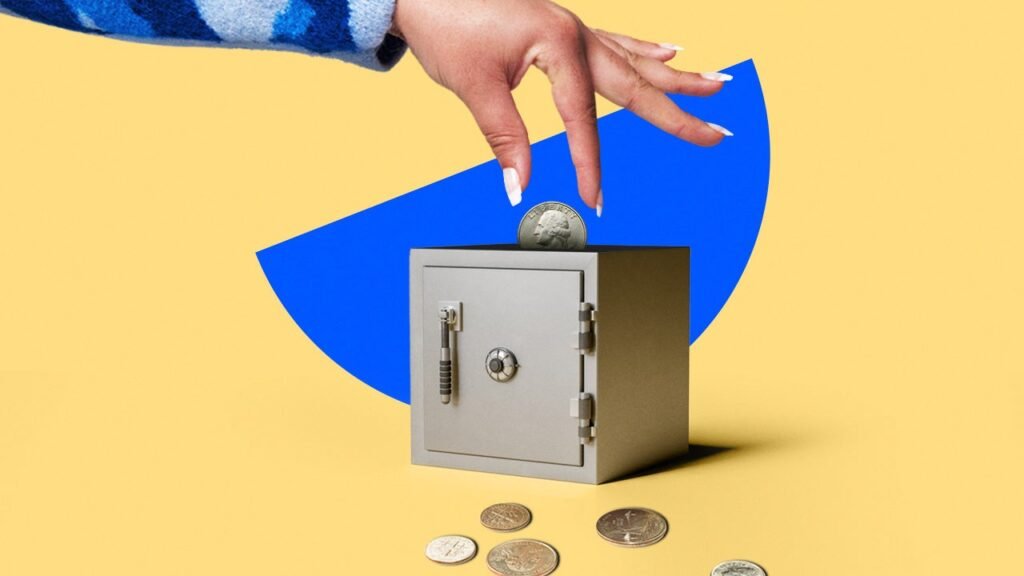Images by Getty Images; Illustration by Issiah Davis/Bankrate
The average savings account rate is a benchmark for the overall interest-rate environment, but it’s not a rate you should settle for.
Rather, aim for an annual percentage yield (APY) many times the national average, such as those offered by high-yield savings accounts. It’s easy to find a high-yield savings account that offers a competitive return with a low minimum balance requirement.
National average savings account interest rates
Many of the best online banks have savings interest rates higher than the national average savings account interest rates. The higher the rate, the more interest you’ll earn on your savings. The national average savings account yield is 0.6 percent APY, according to Bankrate’s survey of institutions as of June 26, 2025. And the best high-yield savings accounts are paying upwards of 4 percent APY.
How Bankrate calculates the national average
Bankrate surveys nearly 500 banks and credit unions weekly to generate the national averages. Included in the survey are institutions that are broadly available and offer high yields, as well as some of the nation’s largest banks.
Interest rates for linked checking and savings
Linking your savings account with a checking account is one way to earn a higher yield at some banks. Sometimes called relationship rates, it’s more common for brick-and-mortar banks to offer them.
For instance, at U.S. Bank, one way you can get a higher APY is by pairing a qualifying checking account with a Bank Smartly savings account. Depending on how much money you keep with the bank, your relationship rate could be significantly higher than the standard rate:
- The standard APY on Bank Smartly savings is 0.05 percent APY on any balance.*
- But if you have another qualifying U.S. Bank account and have $5,000 or less across accounts, you’ll earn 1 percent APY.*
- With at least $25,000 in combined balances across accounts, you’ll earn 3 percent APY or more.*
But you’ll often find higher APYs at online-only banks, with lower minimum requirements to open the account and earn the highest rate. Many online banks have minimum opening requirements of $100 or less and pay high APYs on all balances.
*Annual percentage yields (APYs) shown are as of June 26, 2025. Bankrate’s editorial team updates this information weekly. APYs may have changed since they were last updated and may vary by region for some products.
Bottom line
Compare online banks with larger banks when you search for a high-yield account. You’re likely to find that online banks have lower minimum balances, won’t have monthly fees and may pay the same APY on all balances. In many cases, these savings account interest rates will be higher than what you’ll earn from a savings account at a brick-and-mortar bank, even with a relationship rate.
Use the national average savings rate as your gauge. You should be able to easily find a bank that’s offering an APY multiple times higher than the national average.
Calculate the difference between the APY at a big bank compared with the yield at an online bank to see what higher-interest earnings look like. The power of compounding helps your interest earn interest over time.
Why we ask for feedback
Your feedback helps us improve our content and services. It takes less than a minute to
complete.
Your responses are anonymous and will only be used for improving our website.
Help us improve our content
Read the full article here

















